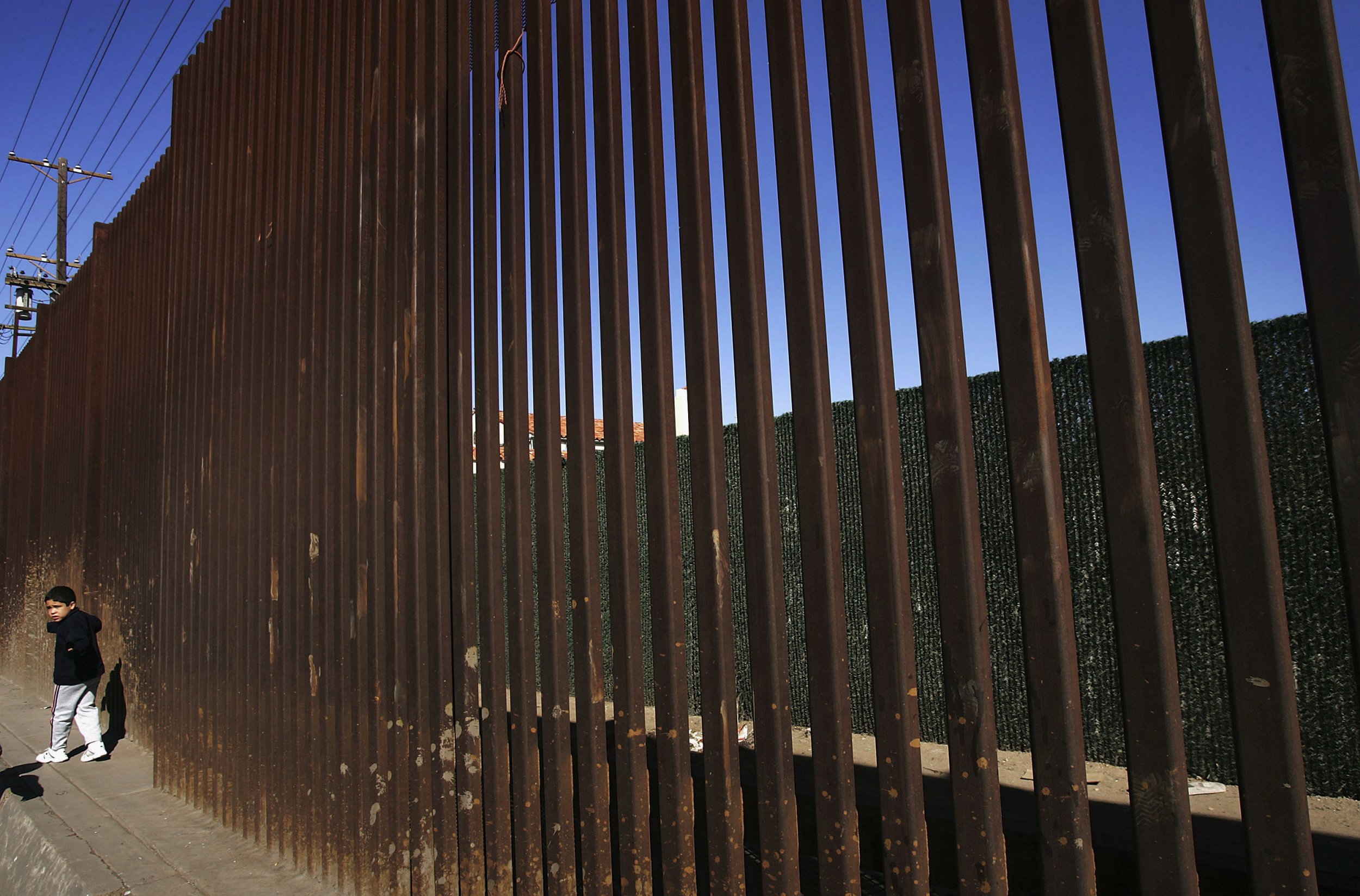
This article first appeared on the Cato Institute site.
President Donald Trump's executive order about his proposed border wall would only do so much, as Congress would have to appropriate funds to actually construct the wall. A wall built to the dimensions and specifications promised by Trump would cost about $25 billion to $31.2 billion and run 1,000 miles along the border with Mexico.
Since the Mexican government won't pay for the wall and holding up all remittances in order to get the Mexican government to pay for it runs into constitutional problems, some like Mark Krikorian of the Center for Immigration Studies have proposed a nation-wide refundable fee (a tax with another name) on wire remittances to fund the wall.
Taxing remittances of illegal immigrants will not raise enough funds for a huge new border wall.
A remittances tax would have to be very high to raise enough revenue to pay for a wall, even assuming there is no fall off in revenue at higher rates. The state of Oklahoma has a wire transmitter fee equal to about one percent of the funds transmitted. In 2016, the tax raised $12,696,879.25, or $133.65 per illegal immigrant in the state.
Back of the envelope, a nationwide version of the wire transmitter fee would only raise about $1.6 billion annually. If the nationwide wire transmitter fee (tax) was five times as high as in Oklahoma, then it would raise enough money to pay for the wall in three to four years, assuming there is no fall off in revenue at such a high rate or other disruptions don't occur.
Related: Michael Dorf: Why Should Mexico Pay for Trump's Wall?
Oklahoma labels this tax a fee because it's a fully refunded tax credit (EITC). A full 96 percent of those who pay the fees don't claim the credit. David North of the Center for Immigration Studies argues that illegal immigrants pay virtually the entire tax because most of the credits aren't claimed.
That's probably right, but North overstates his case. The IRS estimates that about one in five folks eligible for the EITC do not claim it, although there are many improper payments made too. Furthermore, between 55 percent and 75 percent of illegal immigrants file tax returns, have money withheld from their paychecks, or both. That being said, most of the people paying the tax are likely illegal immigrants, but many Americans also pay directly.
Another reason that a nationwide wire transfer tax won't pay for a wall is that a high rate will simply force remittances onto non-wire systems. The most obvious alternative is sending remittances through banks or credit unions that are exempt from Oklahoma's Wire Transmitter Fee.
Congress could try to impose a transfer fee for those funds, but that would penalize millions of Americans transferring money abroad—including those of us who paid for college abroad.
The government could set up another tax credit scheme, but that would be more bureaucracy and time added on top of an already overly complex tax system. Using Bitcoin or sending gift cards are also viable ways to remit large amounts of cash outside of the wire system.
Illegal immigrant remitters will also be able to rely on their American citizen or legal immigrant friends and family members to transfer funds through wire services. About 16.6 million people live in households with the 11 million to 12 million illegal immigrants in the United States. Many of those legal immigrants or U.S. natives would be happy to remit money for their illegal immigrant family members.
As a last resort, remitters could use the black market. Many unlawful immigrants entered the country illegally and some of them use fraudulent documents to work in the United States. Surely they will find a way to illegally remit funds if the tax is large enough. Expanding the size of the black market is not the point of a tax on remittances.
Trump's proposed border wall is expensive and the Mexican government will not pay for it. Taxing remittances by illegal immigrants is a proposed way of funding such a wall but it is unlikely to raise enough funds and will also directly tax many Americans.
Either the tax will have to raise much more revenue than I anticipate, the border wall will have to be a lot cheaper, or both for a tax on remittances to raise enough money for this project. If this wall ever gets built then American taxpayers will foot the bill—as usual.
Alex Nowrasteh is the immigration policy analyst at the Cato Institute's Center for Global Liberty and Prosperity.
Uncommon Knowledge
Newsweek is committed to challenging conventional wisdom and finding connections in the search for common ground.
Newsweek is committed to challenging conventional wisdom and finding connections in the search for common ground.
About the writer
To read how Newsweek uses AI as a newsroom tool, Click here.








